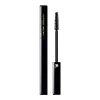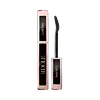What's inside
What's inside
 Key Ingredients
Key Ingredients

 Benefits
Benefits

 Concerns
Concerns

 Ingredients Side-by-side
Ingredients Side-by-side

Water
Skin ConditioningParaffin
PerfumingStearic Acid
CleansingTriethanolamine
BufferingCera Alba
EmollientAcacia Senegal Gum
MaskingPalmitic Acid
EmollientCI 77499
Cosmetic ColorantCopernicia Cerifera Cera
EmollientCI 77007
Cosmetic ColorantSimethicone
EmollientSodium Polymethacrylate
Emulsion StabilisingSilica
AbrasiveMyristic Acid
CleansingHydroxyethylcellulose
Emulsion StabilisingPanthenol
Skin ConditioningPolyquaternium-10
BHT
AntioxidantImidazolidinyl Urea
PreservativeMethylparaben
PreservativePropylparaben
PreservativeWater, Paraffin, Stearic Acid, Triethanolamine, Cera Alba, Acacia Senegal Gum, Palmitic Acid, CI 77499, Copernicia Cerifera Cera, CI 77007, Simethicone, Sodium Polymethacrylate, Silica, Myristic Acid, Hydroxyethylcellulose, Panthenol, Polyquaternium-10, BHT, Imidazolidinyl Urea, Methylparaben, Propylparaben
Water
Skin ConditioningPropylene Glycol
HumectantStyrene/Acrylates/Ammonium Methacrylate Copolymer
Polyurethane-35
Cera Alba
EmollientSynthetic Fluorphlogopite
Glyceryl Stearate
EmollientCetyl Alcohol
EmollientPEG-200 Glyceryl Stearate
Ethylenediamine/Stearyl Dimer Dilinoleate Copolymer
Skin ConditioningCopernicia Cerifera Cera
EmollientStearic Acid
CleansingPalmitic Acid
EmollientEthylene/Va Copolymer
Emulsion StabilisingAlcohol Denat.
AntimicrobialCamellia Sinensis Leaf Extract
AntimicrobialParaffin
PerfumingGlycerin
HumectantSodium Laureth Sulfate
CleansingMyristic Acid
CleansingAminomethyl Propanediol
BufferingDisodium EDTA
Hydroxyethylcellulose
Emulsion StabilisingCaprylic/Capric Triglyceride
MaskingCaprylyl Glycol
EmollientTetrasodium EDTA
Xanthan Gum
EmulsifyingButylene Glycol
HumectantPentaerythrityl Tetra-Di-T-Butyl Hydroxyhydrocinnamate
AntioxidantPotassium Sorbate
PreservativePhenoxyethanol
PreservativeCI 77499
Cosmetic ColorantWater, Propylene Glycol, Styrene/Acrylates/Ammonium Methacrylate Copolymer, Polyurethane-35, Cera Alba, Synthetic Fluorphlogopite, Glyceryl Stearate, Cetyl Alcohol, PEG-200 Glyceryl Stearate, Ethylenediamine/Stearyl Dimer Dilinoleate Copolymer, Copernicia Cerifera Cera, Stearic Acid, Palmitic Acid, Ethylene/Va Copolymer, Alcohol Denat., Camellia Sinensis Leaf Extract, Paraffin, Glycerin, Sodium Laureth Sulfate, Myristic Acid, Aminomethyl Propanediol, Disodium EDTA, Hydroxyethylcellulose, Caprylic/Capric Triglyceride, Caprylyl Glycol, Tetrasodium EDTA, Xanthan Gum, Butylene Glycol, Pentaerythrityl Tetra-Di-T-Butyl Hydroxyhydrocinnamate, Potassium Sorbate, Phenoxyethanol, CI 77499
 Reviews
Reviews

Ingredients Explained
These ingredients are found in both products.
Ingredients higher up in an ingredient list are typically present in a larger amount.
Cera alba is beeswax, or the wax used by bees to make honeycombs. It is a texture-enhancer and emollient. A study from 2003 found beeswax to be a stronger emollient than ingredients such as petroleum jelly.
As an emollient, beeswax helps hydrate the skin by creating a barrier on top. This barrier traps moisture in.
Emulsifiers help prevent ingredients from separating. This helps create consistent texture.
The structure of beeswax is mainly long-chain alcohols and the esters of fatty acids.
There are three types of beeswax: yellow, white, and absolute. Yellow is pure beeswax taken from the honeycomb. White beeswax is created by filtering or bleaching yellow beeswax. Absolute beeswax is created by treating beeswax with alcohol. Beeswax used in cosmetics are purified.
Beeswax has been used throughout history and even in prehistoric times. Some common uses for beeswax still used today are making candles, as a waterproofing agent, and polish for leather.
Learn more about Cera AlbaCi 77499 is also hydrated iron III oxide. It is created from mixing red and black iron oxides. This helps give shades of darkness to a product.
Iron III oxides are classified as inorganic chemicals for coloring.
This ingredient comes from a palm tree native to Brazil. This ingredient is used to thicken texture and leaves behind a film when applied.
Hydroxyethylcellulose is used to improve the texture of products. It is created from a chemical reaction involving ethylene oxide and alkali-cellulose. Cellulose is a sugar found in plant cell walls and help give plants structure.
This ingredient helps stabilize products by preventing ingredients from separating. It can also help thicken the texture of a product.
This ingredient can also be found in pill medicines to help our bodies digest other ingredients.
Learn more about HydroxyethylcelluloseMyristic Acid is a saturated fatty acid. It is naturally found in milk fat. Other sources include palm oil, coconut oil, and butter fat.
Myristic Acid is an emulsifer and cleanser. As an emulsifer, it stabilizes a product by preventing ingredients from separating. Myristic Acid helps clean your skin by acting as a surfactant. It tends to gather oil and dirt on your skin to be easily rinsed away.
One study from 2021 found Myristic Acid to have anti-inflammatory properties.
Learn more about Myristic AcidPalmitic Acid is a fatty acid naturally found in our skin and in many plant and animal sources. In cosmetics, it is usually derived from palm oil. It serves many purposes in skincare, acting as a cleanser, emollient, and emulsifier.
As an emollient, palmitic acid helps soften and smooth the skin by preventing water loss. In cleansers, it helps remove oil and dirt while creating foam.
Its emulsifying properties help stabilize products by keeping water and oil-based ingredients from separating.
This may not be suitable for fungal acne-prone skin, as fatty acids like this can sometimes trigger breakouts in sensitive individuals.
Learn more about Palmitic AcidParaffin is a solid created from petroleum. The term 'paraffin' can also refer to either
petroleum jelly or mineral oil.
It has natural occlusive properties which can worsen oily skin. Due to its petrolatum base, this ingredient is not fungal-acne safe.
Stearic Acid is a fatty acid. It is an emollient, emulsifier, and texture enhancer.
As an emollient, stearic acid helps soften skin. It aids the skin's protective barrier by preventing water loss. It also provides a gentle cleansing effect without stripping away natural oils.
Stearic acid may also be used to enhance the texture of products. It can add volume and stabilize ingredients such as water and oil. This can help water and oil ingredients from separating.
Sources of stearic acid include animal or vegetable fats/oils such as coconut or shea. It can be naturally found in butter, cocoa butter, shea butter, vegetable fats, and animal tallow.
This ingredient may not be Malassezia folliculitis, or fungal-acne safe.
Learn more about Stearic AcidWater. It's the most common cosmetic ingredient of all. You'll usually see it at the top of ingredient lists, meaning that it makes up the largest part of the product.
So why is it so popular? Water most often acts as a solvent - this means that it helps dissolve other ingredients into the formulation.
You'll also recognize water as that liquid we all need to stay alive. If you see this, drink a glass of water. Stay hydrated!
Learn more about Water